For those who don’t have a car, these are the best cities for public transportation for retirees:
Car ownership can be very costly, particularly for retirees on fixed incomes and in light of inflation. Recent studies indicate that the average cost of a new car is approximately $9,282 per year, which translates to some expenses of $774 per month.
Naturally, there are other reasons why owning a car might not be the best choice for retirees besides money. After they retire, some people just don’t want to drive anymore, and I completely understand that especially if they have had to commute from home to their job for more than 30 years. Others have medical reasons to avoid driving.
Regardless of the situation, there is good news. For those without a car, there are many locations in America with first-rate public transportation. If you’re considering retirement and don’t want to own a car, here are some places to check out. Curious if your location made the list? Read on to see the best cities for public transportation in America.

New York City
The Bronx, Brooklyn, Manhattan, Queens, and Staten Island are among the neighborhoods that make up New York City. There are numerous public transportation options available throughout the entire area. The subway, buses, and ridesharing services are all included in this. Staten Island is even accessible by train.
Many of NYC’s public transit systems use OMNY, which lets you pay for your ride by tapping your smartphone or a special card. This feature eliminates the inconvenience of needing to carry exact change with you wherever you go.
Just 18% of households in Manhattan, the epicenter of New York City, own a personal vehicle. 92% of American households own a car, which is a sharp contrast to the rest of the nation.
Everything is more expensive here, including income taxes, housing, groceries, gas, and the cost of renting and insuring a car. Furthermore, as a citizen, you are aware of the unparalleled value of what Manhattan has to offer.
So if you were thinking about relocating for retirement because NYC is getting too expensive, consider that it is among the best cities for public transportation for retirees.
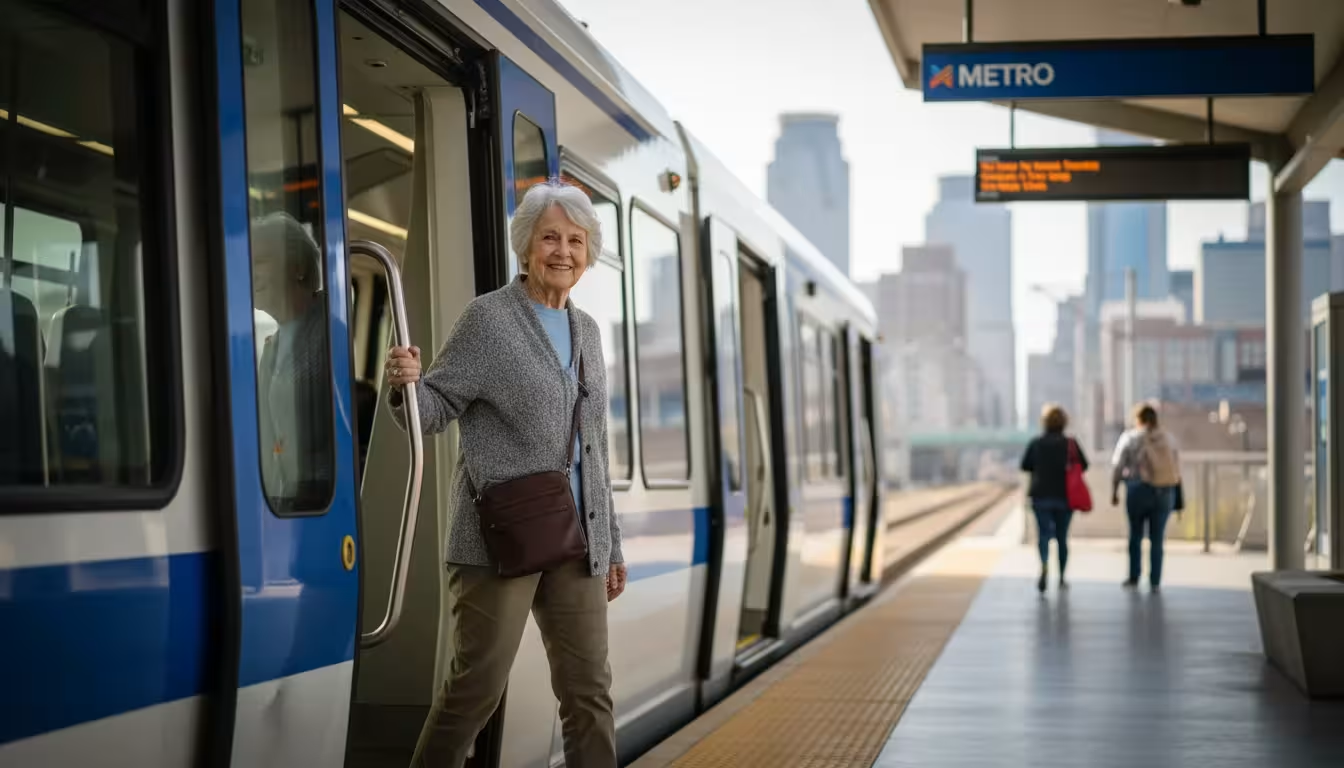
Minneapolis-Saint Paul
Are you a Minneapolis citizen who doesn’t have a car? Then you probably agree with the fact that getting around the Minneapolis-Saint Paul area is simple thanks to the area’s extensive public transportation network. In addition, the city offers many initiatives, such as the Transit Assistance Program, to assist those with low incomes in covering the cost of public transportation.
Metro Transit connects Minneapolis and St. Paul with their suburbs by providing light rail and bus services. When it comes to affordability, this region frequently performs better than other large metropolitan areas.
When it comes to affordability, this region frequently performs better than other large metropolitan areas. Minnesota does not tax Social Security benefits, and housing costs can be comparatively lower than in coastal cities.
In addition to having a well-developed public transportation system, the Minneapolis-Saint Paul region has a cheaper cost of living than other large cities. Retirees can also enjoy the city’s parks, a robust healthcare system, and various activities to do.
If you want to relocate in retirement, think about Minneapolis, voted as one of the best cities for public transportation in the U.S.
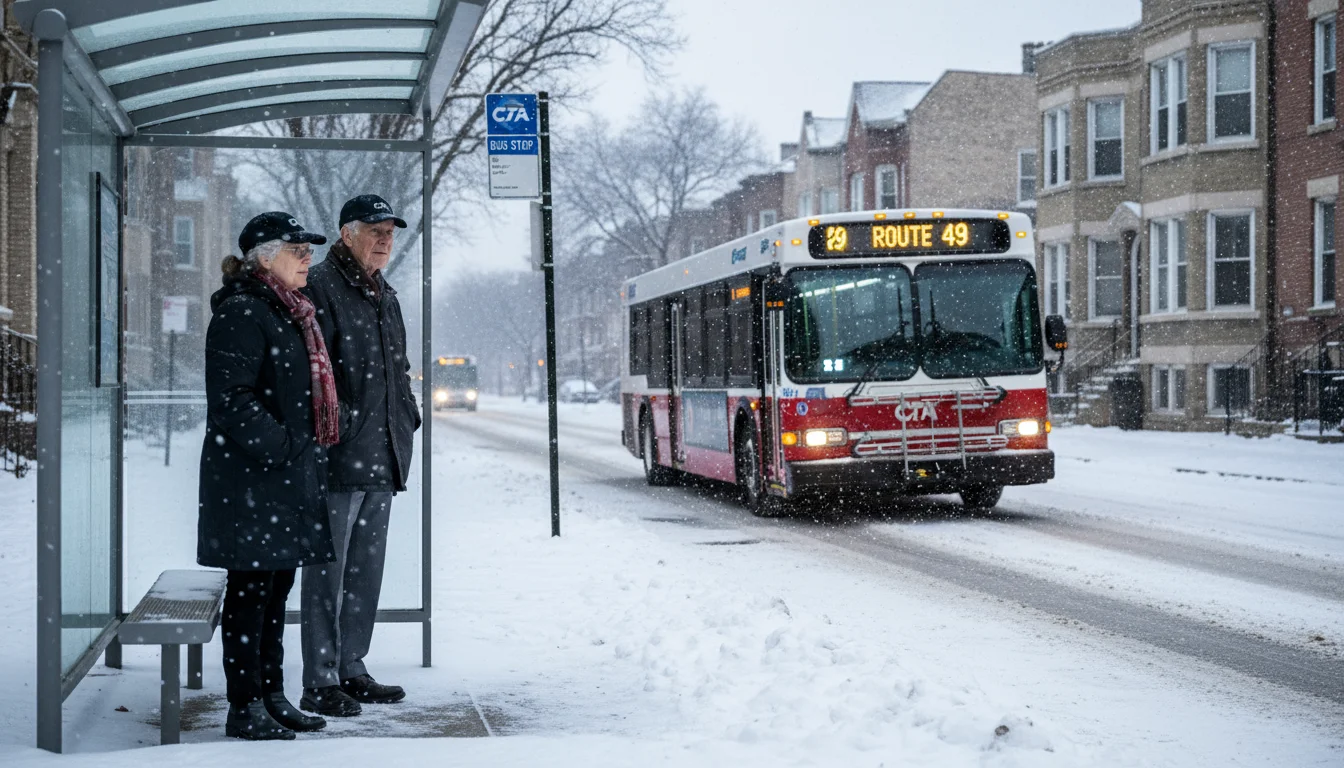
Chicago
According to a recent survey, Chicago is among the best cities for public transportation. A Ventra card can be used to receive senior fare discounts on Chicago’s dependable and reasonably priced CTA bus system. Through the Illinois Benefit Access Program, the city also provides seniors with low incomes with free rides. Wheelchair ramps and priority seating are features of buses.
Seniors can navigate the city without a car, even outside of downtown, thanks to frequent public transportation services. Using public transit is a safer and more affordable choice, especially since parking in Chicago can be expensive and driving during the winter months can be hazardous. The bus system in Chicago is an affordable and accessible option for seniors who wish to stretch their money.

Seattle
Seattle, Washington, is among the best cities for public transportation due to its comprehensive system. You can get around without a car effortlessly, even if you live outside the city limits, like in places like Kent or Everett. Since housing and other expenses are typically less expensive outside of the city center, this can also help keep them low.
King County Metro Transit provides effective transit options both inside the city and to neighboring suburbs by operating buses and the Link light rail. Seattle, Washington, is a suitable option if you want a larger retirement net take-home pay because Washington State does not impose state income taxes.
Other options for public transportation are also accessible. For instance, you can travel to different places in the region and even across the state by train or ferry.
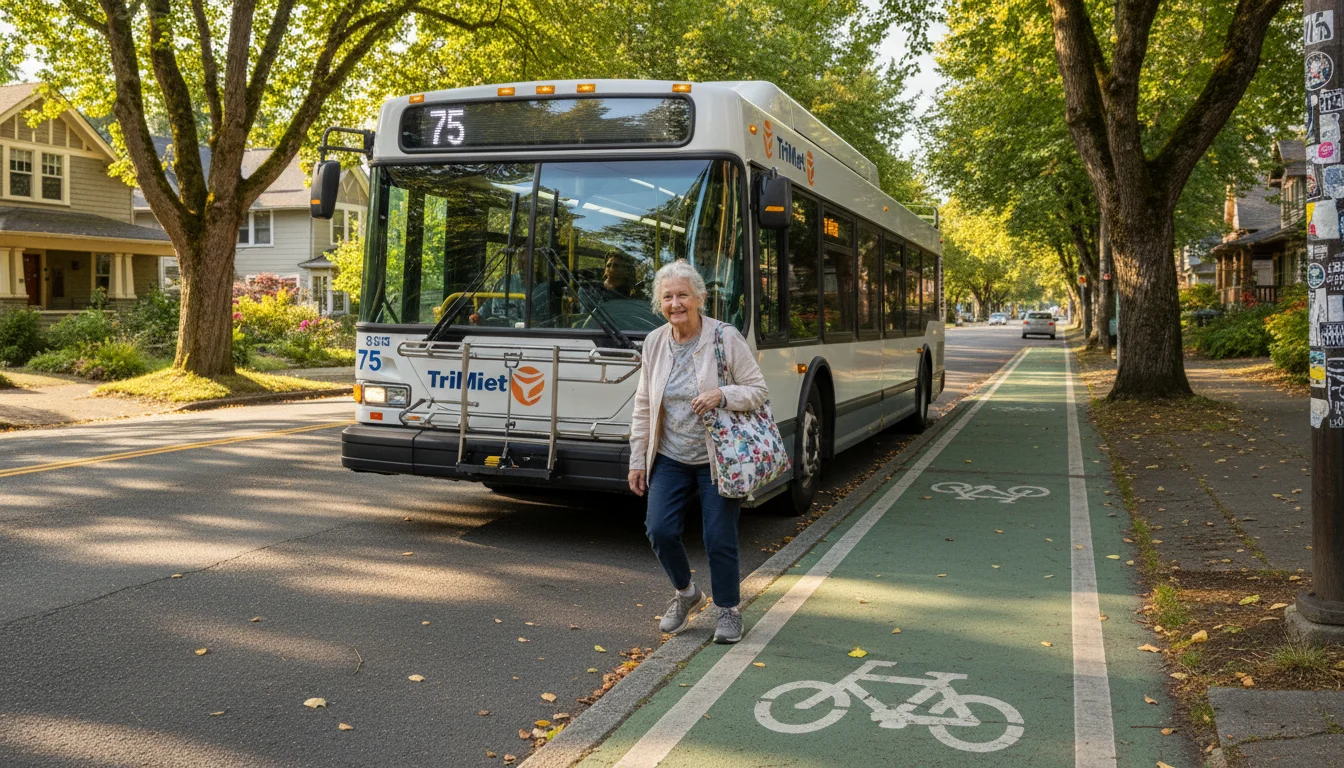
Portland
For seniors who wish to live car-free, Portland’s TriMet bus system is ideal. The city prioritizes accessibility, with all buses having low floors and ramps, and offers seniors half-price fares. Running errands without a car is simple in Portland’s small neighborhoods.
The city is putting money into dedicated bus lanes to make transit more effective. Portland’s bus system enables seniors to remain mobile on a budget with reasonably priced monthly passes and a strong focus on sustainability.
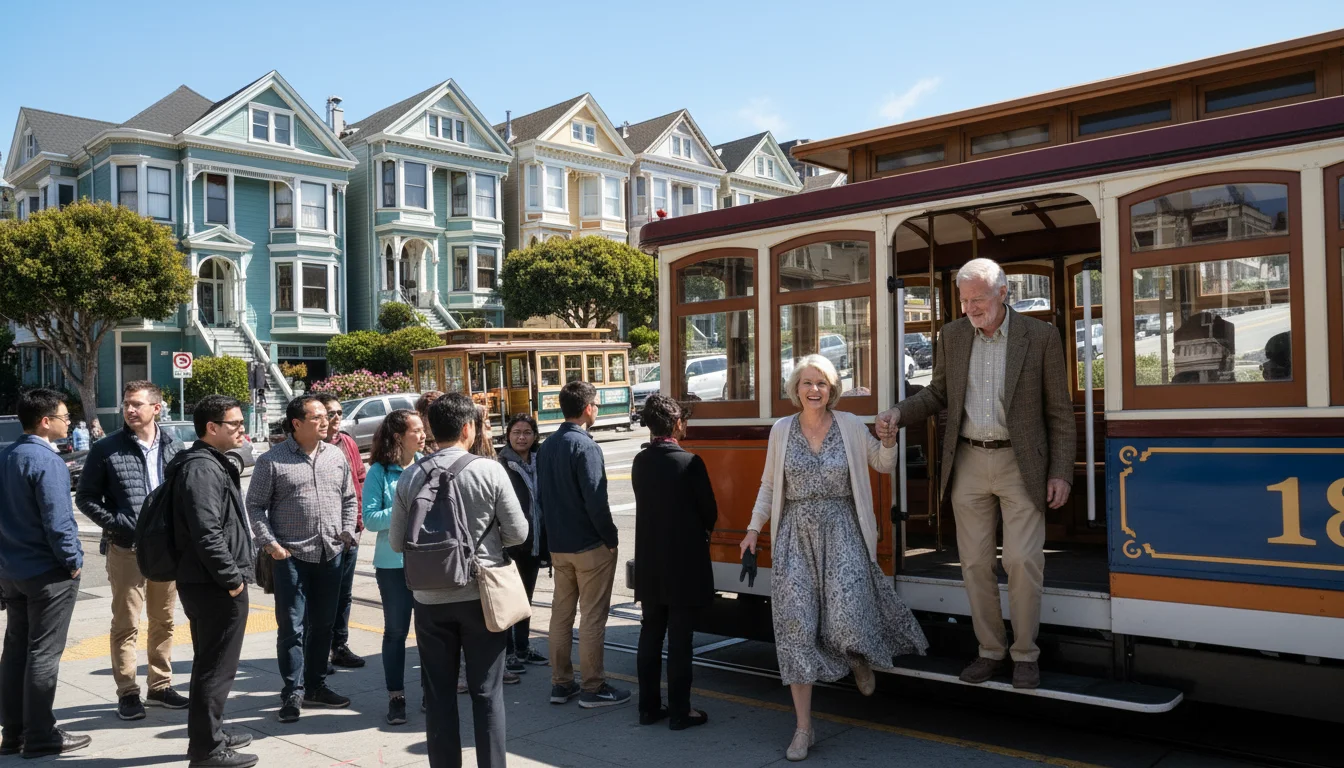
San Francisco
San Francisco is one of the best cities for public transportation, especially for retirees who are on the lookout for discounts and ways to stretch their monthly income. According to local citizens, San Francisco is a blessing for those who don’t have a car. One of them said, “It’s absolutely easy to go from one point to another.
The Muni system in San Francisco, for instance, uses light rail metro trains, cable cars, buses, and historic streetcars to facilitate travel throughout the city. Planning your trip in advance and learning about the various routes and stops are made even simpler by their website.
You don’t want to use transportation at all? San Francisco is a safe and lovely place for people to enjoy biking or strolling everywhere.

Los Angeles
Even though cars are the norm in Los Angeles, the Metro bus system is a lifesaver for seniors with low incomes. For seniors with a TAP card, the city provides $2.50 day passes and discounted fares ($0.75 per ride).
Several bus routes link to social centers, supermarkets, and medical facilities. Due to the high expenses of gas, insurance, and parking in Los Angeles, bus transit is a much more cost-effective option. To increase service speed, the city is also making investments in rapid routes and bus-only lanes. Taking the bus in Los Angeles is a cost-effective and smart choice for elderly people on a fixed income.
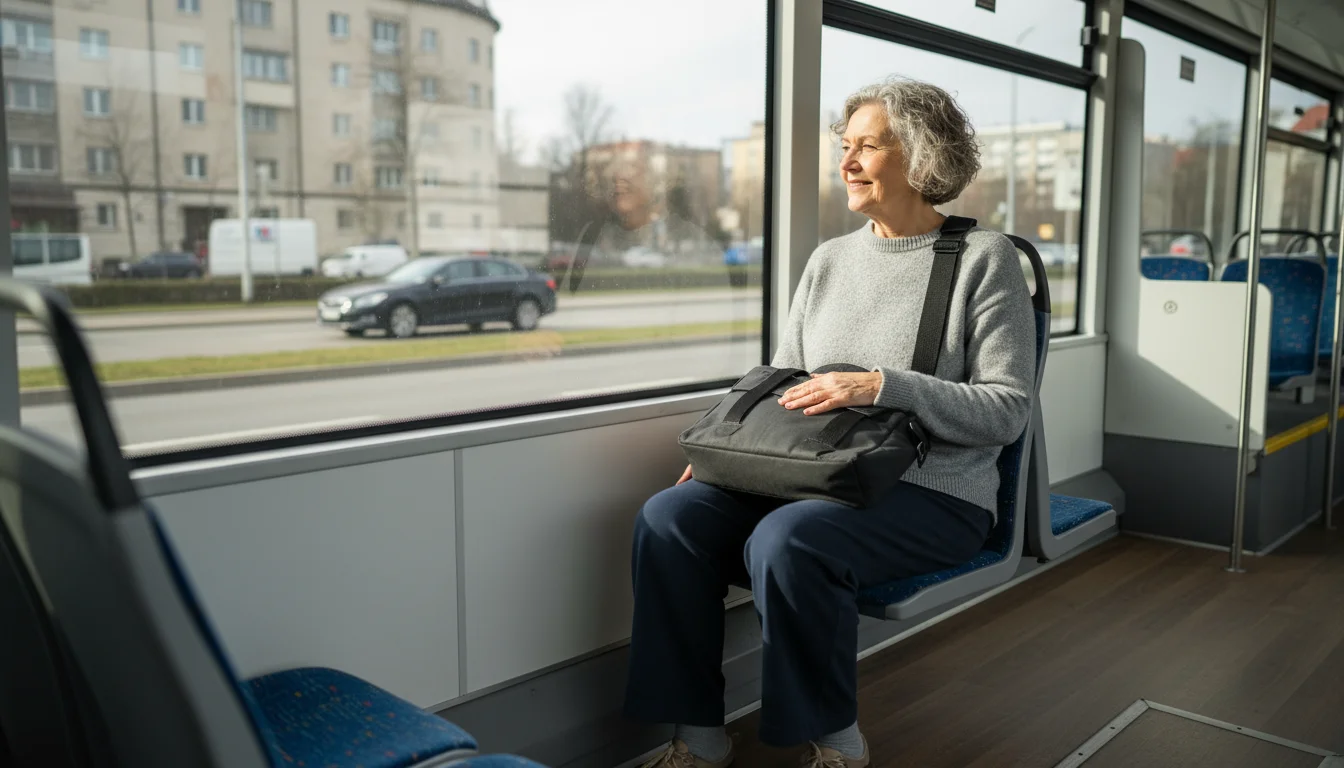
Take away:
Access to public transportation can significantly reduce expenses and ease the burden of living on a fixed income for retirees. While I understand that a lot of people think public transportation is a little gross, especially in the summer, if you’re not going far and you’re avoiding the busy hours, it’s a cost-effective choice.
Where do you reside? How is the public transportation treating seniors there? Share your thoughts with me in the comments below.
Traveling by public transportation is a budget-friendly option, but it can come with its challenges (bus thefts) especially if you have a lot of bags with you. So why not secure your belongings like your wallet, cards, and ID better while traveling by bus? This anti-theft bag is suitable for both men and women. It can be used as a shoulder bag, crossbody backpack, or simply as a fanny pack. Order yours from Amazon for just $19.99.
Related article that might interest you: 6 Stores With Amazing Senior Discounts.
For expert guidance on senior health and finance, visit Eldercare Locator, AARP, Alzheimer’s Association, American Heart Association and Benefits.gov.
|
Fact-Checked Content
Our editorial team reviews all content for accuracy and updates it regularly. Learn about our editorial process →
|


















